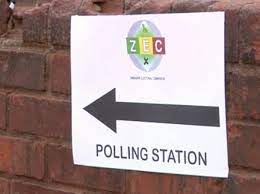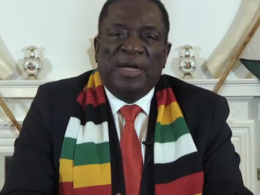Background
A controversy arose following the arrest of 50-year-old Innocent Kakarahwa of New Magwegwe by Bulawayo police on charges of unlawful detention and sexual assault involving an underage girl.
In a statement, the police reported:
“On the 3rd day of December 2024 around 8 pm, he proceeded back to where he left them, took one of the complainants out of the room, and brought her to his vehicle parked outside the building. He adjusted the seat backwards and requested to have sexual intercourse with her. Kakarahwa had sexual intercourse with the complainant once, using protection,” said Assistant Inspector Nomalanga Msebele, the acting Bulawayo Police spokesperson.
What Does the Law Say?
On the 24th May 2024, the Constitutional Court declared that provisions of the Criminal Law Code governing the age at which children can consent to sexual intercourse were unconstitutional.
Section 81(1) of the Constitution defines a child as a boy or girl under the age of 18 years; that is unambiguous and settles the definition of a child for any other law, practice or custom in Zimbabwe. Any law, practice or custom that defines “child” differently is inconsistent with the Constitution.
The same section of the Constitution (section 81(1)) declares that all children – all persons under the age of 18 – have the right to be protected against sexual exploitation, i.e. having advantage being taken of their consent to sexual conduct
According to the law the Criminal Law Code and the Criminal Procedure and Evidence Act [Chapter 9:07] was amended by the Criminal Laws Amendment (Protection of Children And Young Persons) Act, 2024.
Section 70 of the Criminal Laws Amendment ( Protection of Children and Young Persons ) Act states that Sexual intercourse or performing indecent acts with children Between the ages of 12 and 18 : (1) Subject to this section, any person who— (a) Commits upon a child any act involving physical contact that would be regarded by a reasonable person to be an indecent Act; or (b)Solicits or entices a child to have sexual intercourse with Him or her or to commit any act with him or her involving Physical contact that would be regarded by a reasonable Person to be an indecent act.
The Act states that the individual shall be guilty of sexual intercourse or performing an indecent act with a child, as the case may be, and liable to a fine not exceeding level 12 or imprisonment for a period not exceeding ten years or both.
The Criminal Laws Amendment ( Protection of Children and Young Persons ) Act states that It shall be no defense to a charge of sexual intercourse or performing an indecent act with a child to prove that he or she consented to such sexual intercourse or indecent act.
However, the Act clarifies that where sexual intercourse or an indecent act takes place between, 3(a) Children between whom the difference in age is not more than three years; or (b) a child and an adult who is not more than three years older than the child; Neither of them shall be charged with sexual intercourse or performing an indecent act with a child unless the Prosecutor-General, after considering report by a probation officer appointed in terms of the Children’s Act [Chapter 5:06], has authorised the charge.
“ (4) The requirements of subsection (3) shall be additional to the requirements of any other law relating to the prosecution and charging Of children.”
The Act adds, “It shall be a defense to a charge under subsection (1) for the accused person to satisfy the court that he or she had reasonable cause believe that the putative child concerned was of or over the age of Eighteen years at the time of the alleged crime
“Provided that such a defense may be refuted by the prosecutor Adducing evidence to the effect that the accused person knew or had Reasonable cause to believe that the child concerned was under the age of eighteen years at the time of the alleged crime.”
Conclusion
Zimbabwean law provides stringent measures to protect children under 18 from sexual exploitation. The Criminal Laws Amendment (Protection of Children and Young Persons) Act ensures that children cannot legally consent to sexual activities, while also outlining circumstances under which exceptions may be considered.






